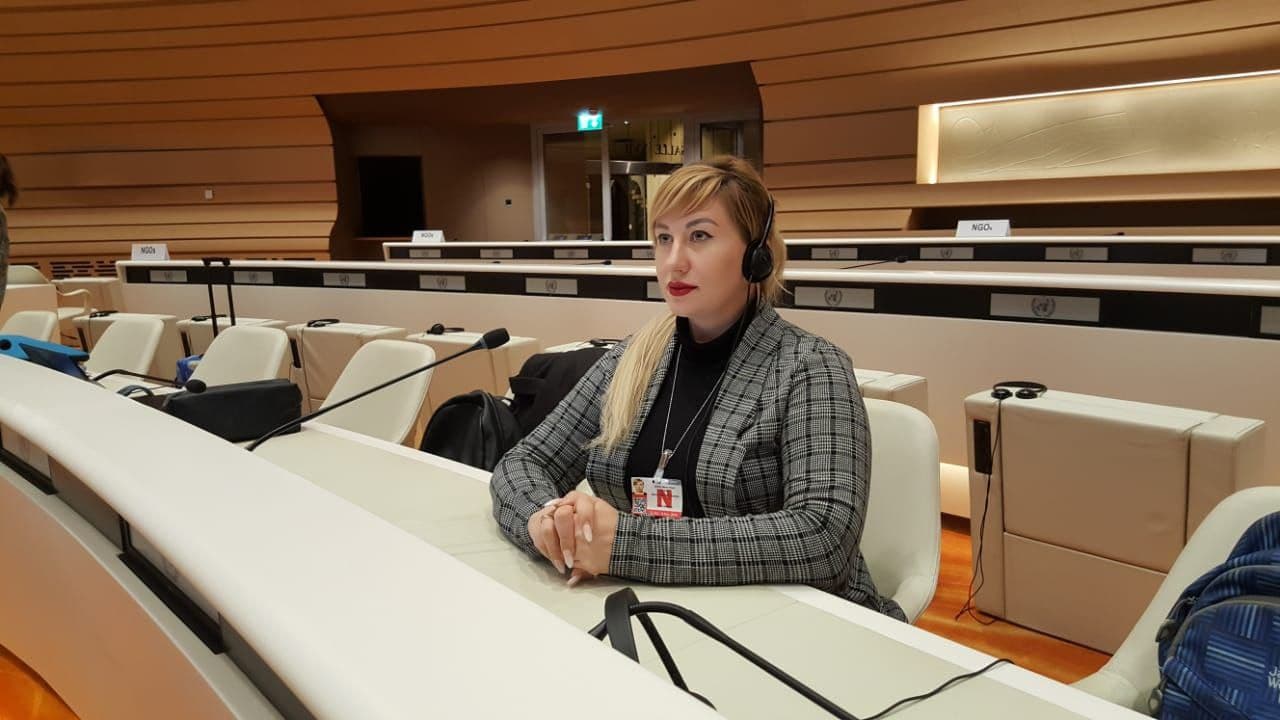Kazakhstan is the only CIS country where tuberculosis diagnostics and treatments are available for everyone free of charge. The government provides treatment, while non-governmental organizations provide assistance to patients. Natalia Zholnerova, the head of Amelia Civic Organization, talks about joint attempts of the government and NGOs to fight tuberculosis in Kazakhstan.
Migrants from Central Asia most often come to southern regions and capital of Kazakhstan in search of greener pastures. Amelia Civic Organization has been working in Taldykorgan since 2012, helping vulnerable groups of people, including migrants. The organization protects people’s rights, improve quality of life, and provide access to medical, social, psychological, and other service.
In the 6 months between June and December 2020, Amelia provided multifaceted help and support to 560 migrants, mainly undocumented labour migrants from Uzbekistan, Tajikistan, and Kyrgyzstan. From all vulnerable groups Amelia works with, the migrants are the third largest, after alcohol abusers and the poor.
Currently, the organization is using a minor grant from the Global Fund project on tuberculosis. In total, there are 19 regional NGOs in Kazakhstan which support people with tuberculosis.
Diagnostics and treatment
The policy of tuberculosis treatment has severely changed in the last 5 years. Before, the focus was on long-term treatment in a hospital. Currently, the use of hospital beds is being reduced in favour of outpatient treatment. Thus, more patients stay socially active, and there are more resources for medications due to decreasing costs of hospitalizations.
According to the Healthcare Minister’s order, since 2020, each internal or external migrant with tuberculosis can receive medical help in Kazakhstan, including diagnostics and treatment up to so-called conversion (termination of bacterial shedding). To continue treatment, migrants have to be documented, and Amelia helps with that. To be able to receive antituberculosis treatment after discharge as an outpatient, a migrant should be legalized, which means that he or she must have to identify documents, be registered at the place of living, and affiliated with a polyclinic. During the treatment, our organization, together with the Center of Phthisiopulmonology, helps define the patient’s status. That is our aim and goal. Recovery of documents and the following paperwork may take months but is nevertheless possible.
The algorithm of help
Amelia Civic Organization is not a medical organization; we provide social and psychological support. We have memoranda with the national and the regional phthisiopulmonology centres, a contract for a grant from Global Foundation, and in this framework, we have established connection with polyclinics of the region which examine patients, do fluorography, and take samples for GeneXpert (a state-of-the-art, highly accurate and quick diagnostic test for tuberculosis, including multidrug-resistant — editor’s note).
When a migrant is diagnosed with tuberculosis, doctors inform us. We assign an outreach worker (a person who provides closed groups in the street with consultative and preventive help on basis of trust — editor’s note), a social worker, and a psychologist to each person. The first one provides complete assistance; the social worker helps with paperwork, and the psychologist and a chemotherapist (a doctor under whose observation patients with tuberculosis receive medications and are regularly examined — editor’s note) provide medications and motivational consulting on topics of treatment. Groups of mutual support are organized at polyclinics by joint forces.
Sometimes the opposite happens: if our outreach workers find migrants with tuberculosis during prophylactic events, they immediately report to phthisiopulmonology centers. If a patient has active tuberculosis, they are hospitalized, however people with an inactive form of the disease are being referred to outpatient treatment.
Every month, our organization compensates travelling fees for people who receive medications as outpatients. This option is available for those who have an identifying document, registration at the place of living, and a polyclinic assignment.
Tuberculosis prevention and identification of patients
In the Almaty region, we have 9 outreach workers who cooperate with 40 people per month each. They work on the peer-to-peer principle. They are representatives of key risk groups themselves, and they know about many issues as insiders. At prophylactic events, they talk about tuberculosis and do verbal screening among migrants. If there is even one positive answer to a specifically developed list of questions, they accompany a person to a physician. A migrant may have troubles related to nationality, registration, other paperwork, and this is where the assistance of a social worker is needed. The outreach worker accompanies the patient during visits to a doctor and following diagnostics, studies the results of the examination, and then acts according to these results.
A helpful digital instrument
Usually, migrants feel disoriented in a new environment. They do not know their rights in Kazakhstan, do not understand where to go for help, sometimes have troubles with communication. A mobile app can help!
OneImpact is an app for people affected by tuberculosis, a part of the Global Foundation project for fighting AIDS, tuberculosis, and malaria. The app works in 11 countries including Kyrgyzstan and Tadjikistan. It is available in Russian, English, and local languages. In February 2021, it will be adapted for Kazakhstan. Using this app, a migrant with tuberculosis may find accessible local medical organizations and NGOs, notify about an existing problem, ask for advice or share their experience.
Author: Nadezhda Rogozina
This article was prepared with the support of Oxfam in the Russian Federation
